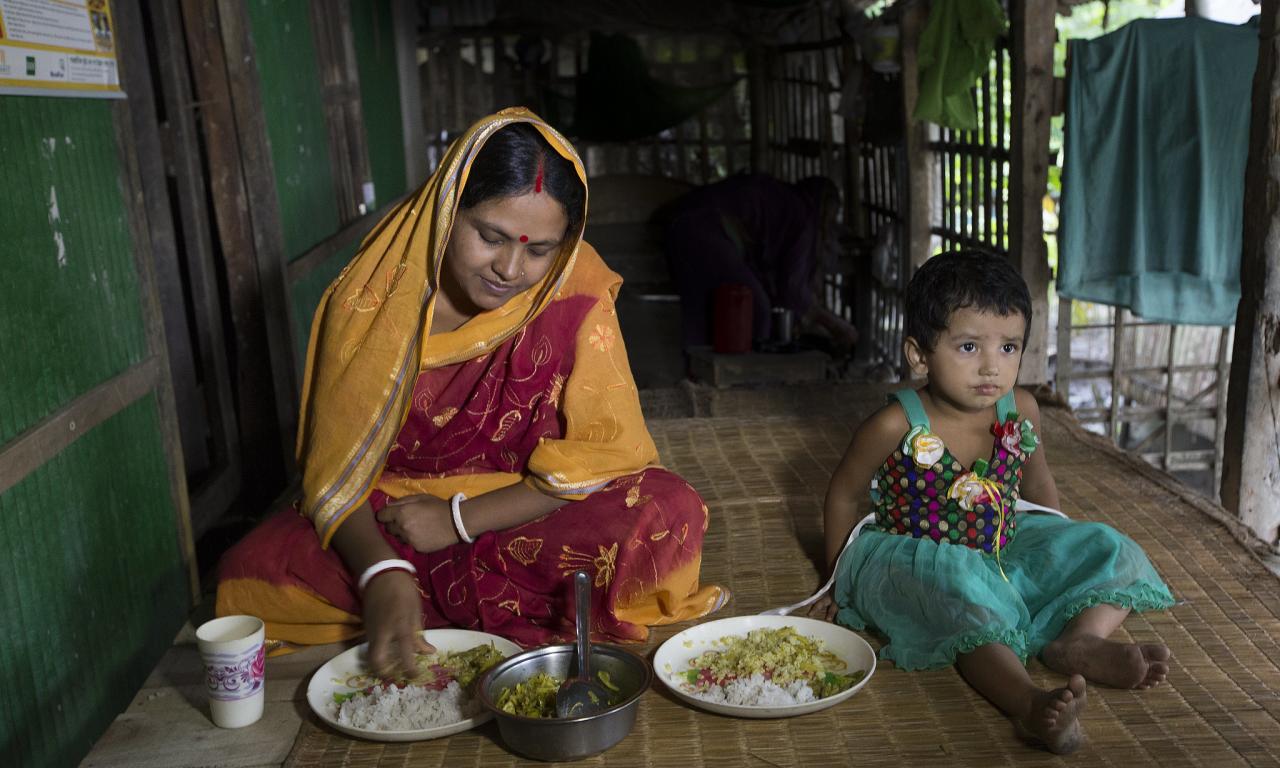
Shakuntala Thilsted advises the CGIAR Council to move research efforts beyond the quantity of food produced to focus on the quality of food consumed and shift the agenda from feeding to nourishing.
WorldFish Global Lead for Nutrition and Public Health, Shakuntala Thilsted, delivered remarks focused on shifting the global food systems agenda from feeding to nourishing at the 13th CGIAR System Council Meeting. The 2021 World Food Prize Laureate spoke of the need to promote nutrition-sensitive approaches to food systems and outlined research priorities to promote human health and well-being.
The CGIAR System Council, comprised of funders including USAID and the EU and representatives of developing countries, convened to discuss the implementation of One CGIAR and spotlight the work of Thilsted and her pioneering research in aquatic food systems for nutrition and health.
In her address to the Council, Thilsted credited her experiences working in Bangladesh and Cambodia with the development of her research and interest in the nutrient composition of aquatic foods.
“I began this work in Bangladesh, and later in Cambodia, where I was able to use multiple entry points for nutrition-sensitive aquatic food systems. While many in CGIAR begin with production systems, I begin with consumption data, household and individual data and the nutrient composition of common foods.”
With the transition to a more integrated One CGIAR, and a renewed mission to “Transform food, land and water systems in a climate crisis,” Thilsted emphasized the need for research approaches that look beyond improving the quantity of food produced to the quality of food consumed in order to nourish people and planet.
Thilsted defined three key priorities for research, innovation and scaling. She recommended harnessing the vast diversity of aquatic foods, including fish and seaweed, to develop solutions to malnourishment at a low environmental cost—aquatic foods have a lower carbon footprint than most terrestrial animal-sourced foods.
Secondly, Thilsted emphasized, researchers and development partners need to make full use of aquatic food-based products, such as fish-powders and fish-based condiments, to meet the micronutrient needs of women and children, particularly in the first 1000 days of life. Many fish-based products can be stored at room temperature and are easily transported to rural inland communities where nutrient-rich foods are in short supply.
Finally, Thilsted spoke of the need to harness the power of aquatic foods to enhance the bioavailability or absorption of micronutrients on the plate, as aquatic foods help to increase the uptake of nutrients in plant-sourced foods.
“Zinc in rice, beta-carotene in orange sweet potato and iron in millet – these can all be increased tremendously by having a small amount of aquatic foods on the plate. This will truly transform the agenda of One CGIAR, from feeding, with a focus on quantity, to nourishing, which includes quality.”
Read Shakuntala Thilsted’s full remarks.
